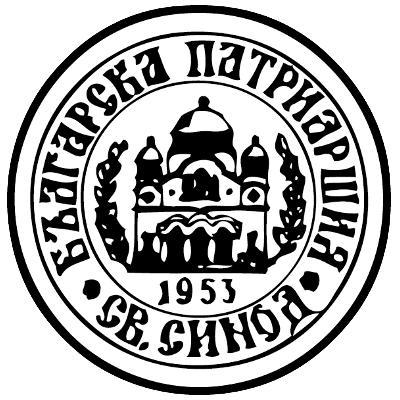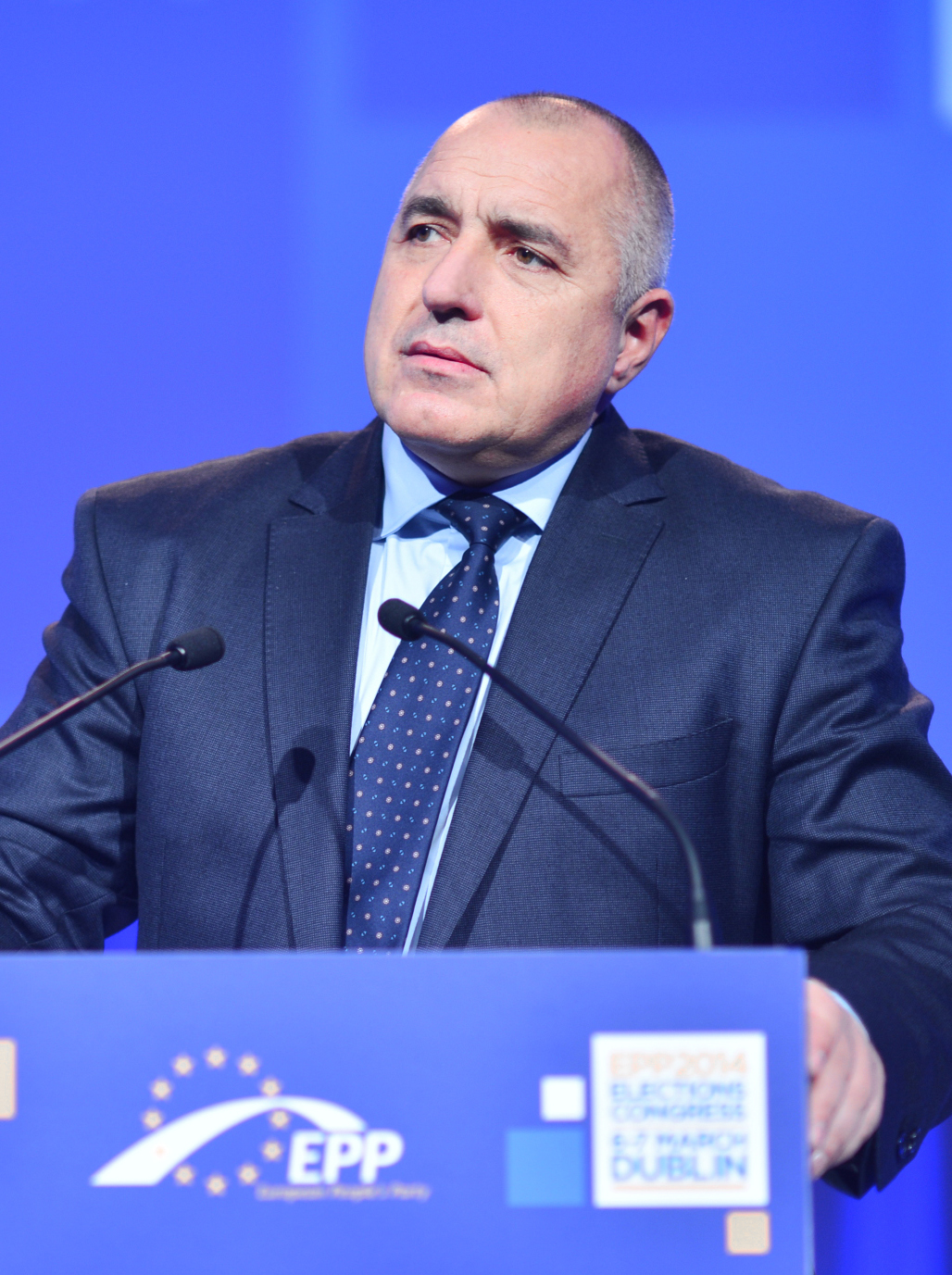|
Attack (political Party)
Attack ( bg, Атака, Ataka) is a nationalist political party in Bulgaria, founded in 2005 by Volen Siderov, who was at the time presenter of the homonymous TV show ''Attack'' on SKAT TV. There are different opinions on where to place the party in the political spectrum: according to most scholars it is extreme right, according to others extreme left, or a synthesis of left- and right-wing. The leadership of the party asserts that their party is "neither left nor right, but Bulgarian". The party is considered ultranationalist and anti-Roma, as well as being anti-Muslim and anti-Turkish. The party opposes Bulgarian membership in NATO and requires revision for what it calls the 'double standards' for the membership in the European Union, while members visit international Orthodox and anti-globalization congresses and the party is closely tied with the Bulgarian Orthodox Church. It advocates the re-nationalisation of privatised companies and seeks to prioritize spending on edu ... [...More Info...] [...Related Items...] OR: [Wikipedia] [Google] [Baidu] |
Volen Siderov
Volen Nikolov Siderov ( bg, Волен Николов Сидеров ; born 19 April 1956) is a Bulgarian far-right politician and chairman of the nationalist party Attack. He has been the editor of numerous newspapers and has authored five books. In 2021, the European Court of Human Rights ruled that Bulgarian courts had erred in not upholding civil discrimination claims against Siderov for his anti-Jewish and anti-Romani statements. __TOC__ Early life Siderov was born in 1956 in Yambol, Bulgaria. He received an undergraduate degree in Applied Photography in Sofia, and before the fall of Communism in 1989, worked at the National Literature Museum as a photographer. His brother, Dr. Plamen Siderov, was a mathematician and lectured at Sofia University. After the fall of Communism, Siderov became a member of the newly established Movement for Human Rights. During the fall of 1990, he became the editor-in-chief of ''Democracy'' ( bg, Демокрация), the official newspaper ... [...More Info...] [...Related Items...] OR: [Wikipedia] [Google] [Baidu] |
Bulgarian Orthodox Church
The Bulgarian Orthodox Church ( bg, Българска православна църква, translit=Balgarska pravoslavna tsarkva), legally the Patriarchate of Bulgaria ( bg, Българска патриаршия, links=no, translit=Balgarska patriarshiya), is an autocephalous Orthodox jurisdiction. It is the oldest Slavic Orthodox church, with some 6 million members in Bulgaria and between 1.5 and 2 million members in a number of European countries, the Americas, Australia, New Zealand and Asia. It was recognized as autocephalous in 1945 by the Ecumenical Patriarchate of Constantinople. History Early Christianity The Bulgarian Orthodox Church has its origin in the flourishing Christian communities and churches set up in the Balkans as early as the first centuries of the Christian era. Christianity was brought to the Balkans by the apostles Paul and Andrew in the 1st century AD, when the first organised Christian communities were formed. By the beginning of the ... [...More Info...] [...Related Items...] OR: [Wikipedia] [Google] [Baidu] |
Identity, Tradition, Sovereignty
Identity, Tradition, Sovereignty (french: Identité, tradition, souveraineté, ITS, stylized its) was a far-right political group in the European Parliament which was composed of 23 MEPs from European parties during the 6th term. A common political charter for the group was signed on 9 January 2007, and the group was formally recognized by Parliamentary president Josep Borrell at the start of the EP plenary session on 15 January. Following remarks made by ITS member Alessandra Mussolini that Romanian ITS members found insulting, the Greater Romania Party (PRM) withdrew from the group, thus disqualifying it as an official group. Hence, it formally ceased to exist on 14 November 2007. History To form a political group in the European Parliament, there needed to be 20 MEPs from six different states (subsequently increased to 25 MEPs from seven states, for the 2009 session). The accession of Bulgaria and Romania brought into the European Parliament a number of new far-right MEPs ... [...More Info...] [...Related Items...] OR: [Wikipedia] [Google] [Baidu] |
2014 European Parliament Election In Bulgaria
The 2014 European Parliament election in Bulgaria was held on 25 May 2014 to elect the Members of the European Parliament from Bulgaria to the European Parliament as part of the larger European Parliament election. After a decision by the European Council in 2013, Bulgaria was allocated 17 seats in the European Parliament for the Eighth European Parliament. The election campaign officially began on 25 April 2014, one month before the election day. Background The elections come a year after the 2013 parliamentary elections in Bulgaria that resulted in a minority parliament. Since the election winner, GERB, failed to form a government the Socialists and the DPS formed a coalition government led by Plamen Oresharski. The European elections of 2014 are considered to be of importance as they will reflect the popularity of the current government. Changes in electoral law In February 2014 Bulgarian MPs voted to lower the preferential-vote threshold for the election from 6% to 5 ... [...More Info...] [...Related Items...] OR: [Wikipedia] [Google] [Baidu] |
Anti-globalization Movement
The anti-globalization movement or counter-globalization movement, is a social movement critical of economic globalization. The movement is also commonly referred to as the global justice movement, alter-globalization movement, anti-globalist movement, anti-corporate globalization movement, or movement against neoliberal globalization. There are many definitions of anti-globalization. Participants base their criticisms on a number of related ideas. What is shared is that participants oppose large, multinational corporations having unregulated political power, exercised through trade agreements and deregulated financial markets. Specifically, corporations are accused of seeking to maximize profit at the expense of work safety conditions and standards, labour hiring and compensation standards, environmental conservation principles, and the integrity of national legislative authority, independence and sovereignty. Some commentators have variously characterized changes in th ... [...More Info...] [...Related Items...] OR: [Wikipedia] [Google] [Baidu] |
Eastern Orthodox Church
The Eastern Orthodox Church, also called the Orthodox Church, is the second-largest Christian church, with approximately 220 million baptized members. It operates as a communion of autocephalous churches, each governed by its bishops via local synods. The church has no central doctrinal or governmental authority analogous to the head of the Roman Catholic Church—the Pope—but the Ecumenical Patriarch of Constantinople is recognized by them as ''primus inter pares'' ("first among equals"), which may be explained as a representative of the church. As one of the oldest surviving religious institutions in the world, the Eastern Orthodox Church has played a prominent role in the history and culture of Eastern and Southeastern Europe. The Eastern Orthodox Church officially calls itself the Orthodox Catholic Church. Eastern Orthodox theology is based on holy tradition, which incorporates the dogmatic decrees of the seven ecumenical councils, the Scriptures, and the tea ... [...More Info...] [...Related Items...] OR: [Wikipedia] [Google] [Baidu] |
European Union
The European Union (EU) is a supranational political and economic union of member states that are located primarily in Europe. The union has a total area of and an estimated total population of about 447million. The EU has often been described as a ''sui generis'' political entity (without precedent or comparison) combining the characteristics of both a federation and a confederation. Containing 5.8per cent of the world population in 2020, the EU generated a nominal gross domestic product (GDP) of around trillion in 2021, constituting approximately 18per cent of global nominal GDP. Additionally, all EU states but Bulgaria have a very high Human Development Index according to the United Nations Development Programme. Its cornerstone, the Customs Union, paved the way to establishing an internal single market based on standardised legal framework and legislation that applies in all member states in those matters, and only those matters, where the states have agree ... [...More Info...] [...Related Items...] OR: [Wikipedia] [Google] [Baidu] |
NATO
The North Atlantic Treaty Organization (NATO, ; french: Organisation du traité de l'Atlantique nord, ), also called the North Atlantic Alliance, is an intergovernmental military alliance between 30 member states – 28 European and two North American. Established in the aftermath of World War II, the organization implemented the North Atlantic Treaty, signed in Washington, D.C., on 4 April 1949. NATO is a collective security system: its independent member states agree to defend each other against attacks by third parties. During the Cold War, NATO operated as a check on the perceived threat posed by the Soviet Union. The alliance remained in place after the dissolution of the Soviet Union and has been involved in military operations in the Balkans, the Middle East, South Asia, and Africa. The organization's motto is '' animus in consulendo liber'' (Latin for "a mind unfettered in deliberation"). NATO's main headquarters are located in Brussels, Belgium, while ... [...More Info...] [...Related Items...] OR: [Wikipedia] [Google] [Baidu] |
Anti-Turkism
Anti-Turkish sentiment, also known as Anti-Turkism ( tr, Türk karşıtlığı), or Turkophobia () is hostility, intolerance, or xenophobia against Turkish people, Turkish culture and the Turkish language. The term refers to intolerance, not only against Turks across all regions, but also against the subjects of the Ottoman Empire, as well as descendants of ethnic Turks such as Syrian Turkmen and Iraqi Turkmen. It is also applied to groups who developed in part under the influence of Turkish culture and traditions while converting to Islam, especially during the time of the Ottoman Empire, such as Albanians, Bosniaks and other smaller ethnic groups around Balkans. Early modern period In the Early modern period, the fall of Constantinople and the Ottoman wars in Europe—part of European Christians' effort to stem the expansion of the Ottoman Empire, the predecessor to Turkey—helped fuel the development of anti-Turkism. By the middle of the 15th century, special ma ... [...More Info...] [...Related Items...] OR: [Wikipedia] [Google] [Baidu] |
Islamophobia
Islamophobia is the fear of, hatred of, or prejudice against the religion of Islam or Muslims in general, especially when seen as a geopolitical force or a source of terrorism. The scope and precise definition of the term ''Islamophobia'', is the subject of debate. Some scholars consider it to be a form of xenophobia or racism, some consider Islamophobia and racism to be closely related or partially overlapping phenomena, while others dispute any relationship; primarily on the grounds that religion is not a race. The causes of Islamophobia are also the subject of debate, most notably between commentators who have posited an increase in Islamophobia resulting from the September 11 attacks, the rise of the militant group Islamic State, other terror attacks in Europe and the United States by Islamic extremists, those who associated it with the increased presence of Muslims in the United States and in the European Union, and others who view it as a response to the emergen ... [...More Info...] [...Related Items...] OR: [Wikipedia] [Google] [Baidu] |
Antiziganism
Anti-Romani sentiment (also antigypsyism, anti-Romanyism, Romaphobia, or Antiziganism) is hostility, prejudice, discrimination or racism which is specifically directed at Romani people (Roma, Sinti, Iberian Kale, Welsh Kale, Finnish Kale, Horahane Roma, and Romanichal). Non-Romani itinerant groups in Europe such as the Yenish, Irish and Highland Travellers are often given the name "gypsy" and confused with the Romani people. As a result, sentiments which were originally directed at the Romani people are also directed at other traveler groups and they are often referred to as "antigypsy" sentiments. The term ''Antigypsyism'' is recognized by the European Parliament and the European Commission as well as by a wide cross-section of civil society. Etymology In the Romani language, ''Rom'' is a masculine noun, meaning 'man of the Roma ethnic group' or 'man, husband', with the plural ''Roma''. However, in most cases, in other languages ''Rom'' is now used for people of all gend ... [...More Info...] [...Related Items...] OR: [Wikipedia] [Google] [Baidu] |




